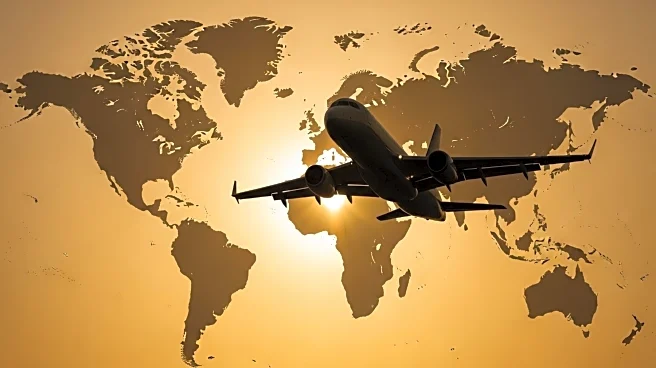What's Happening?
Boeing aircraft have become a recurring element in trade deals negotiated by President Trump, as countries entering agreements with the U.S. often announce large orders for Boeing jets. This pattern emerged following the imposition of tariffs by Trump, with countries like South Korea, Japan, and the UK placing significant orders for Boeing planes. The inclusion of aircraft in trade deals serves as a high-profile symbol of commitment to reducing trade surpluses with the U.S., while also addressing the growing demand for passenger aircraft amid rising international tourism.
Why It's Important?
The focus on Boeing in trade deals highlights the strategic use of high-value, visible commodities to strengthen bilateral relations and address trade imbalances. For the U.S., these deals bolster the domestic aerospace industry, supporting jobs and economic growth. For partner countries, purchasing aircraft offers a politically neutral way to engage in trade, avoiding contentious issues related to other commodities. The deals also reflect the global demand for aircraft, driven by the expanding tourism industry.
What's Next?
As international tourism continues to grow, the demand for aircraft is expected to rise, potentially leading to more trade deals involving Boeing. The long production backlog for aircraft provides countries with flexibility in financial planning, allowing them to announce purchases without immediate economic strain. The focus on Boeing may also influence future trade negotiations, with countries seeking to leverage aircraft orders for favorable terms.
Beyond the Headlines
The emphasis on Boeing in trade deals underscores the symbolic importance of the company as an iconic American brand, representing technological prowess and economic strength. The deals may also impact the competitive dynamics between Boeing and Airbus, as countries weigh their options in the duopolistic aircraft manufacturing market.









